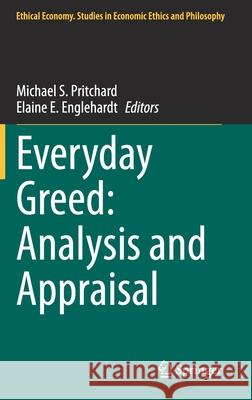Everyday Greed: Analysis and Appraisal » książka
topmenu
Everyday Greed: Analysis and Appraisal
ISBN-13: 9783030700867 / Angielski / Twarda / 2021 / 123 str.
Kategorie BISAC:
Wydawca:
Springer
Seria wydawnicza:
Język:
Angielski
ISBN-13:
9783030700867
Rok wydania:
2021
Wydanie:
2021
Numer serii:
000420909
Ilość stron:
123
Waga:
0.37 kg
Wymiary:
23.39 x 15.6 x 0.97
Oprawa:
Twarda
Wolumenów:
01
Dodatkowe informacje:
Wydanie ilustrowane











